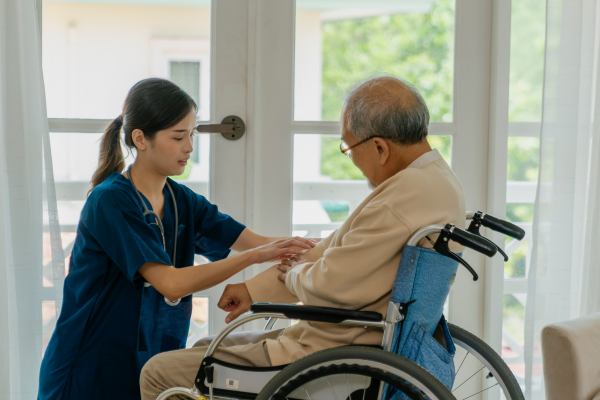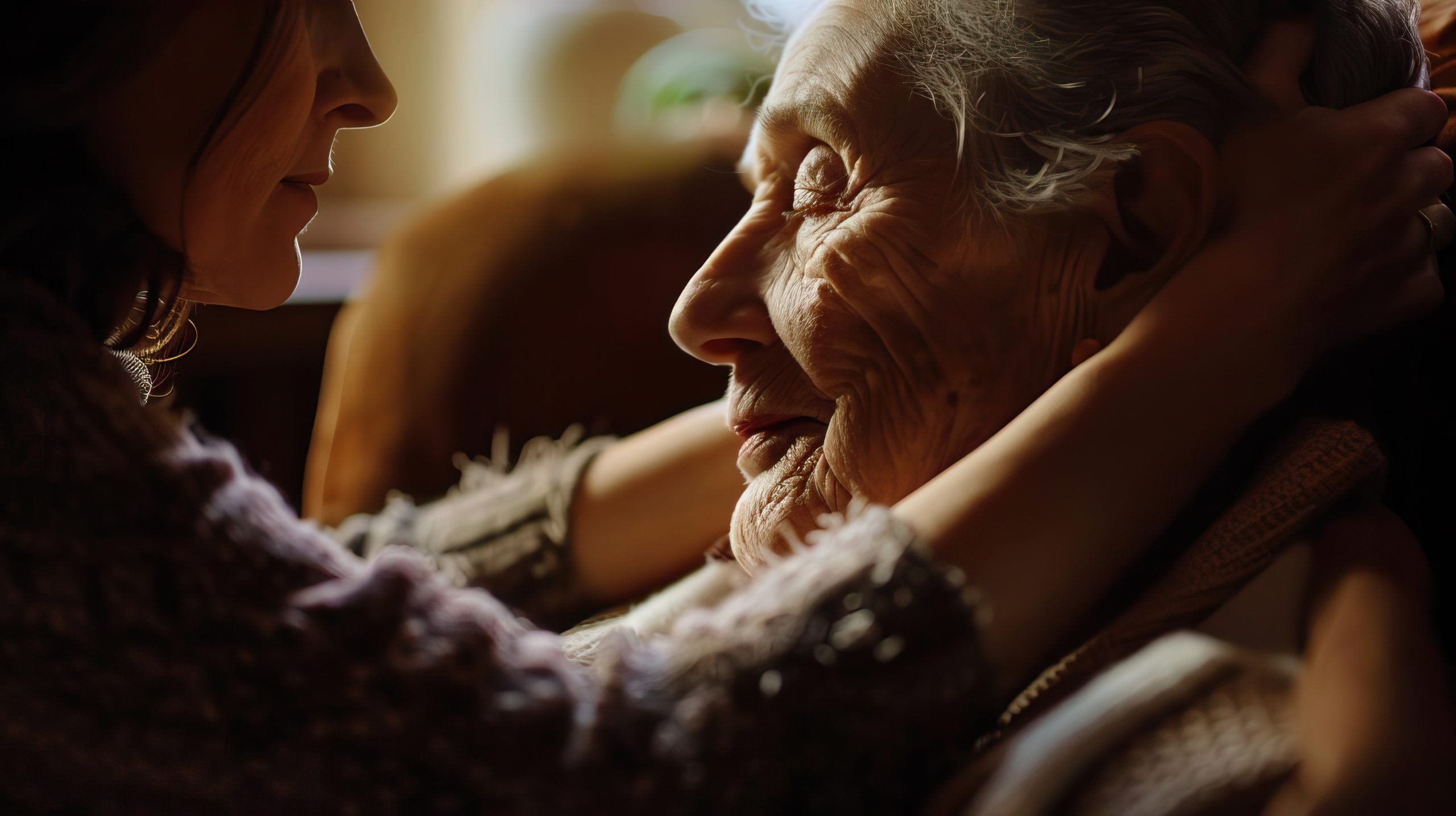
Enhancing Quality of Life and Supporting Dignity in End-of-Life Care
Hospice care is a specialized approach to end-of-life care designed to provide comfort, dignity, and support to individuals facing terminal illnesses. Typically divided into stages, hospice care transitions from initially focusing on creating care plans to addressing specific needs as the journey progresses. Hospice concentrates on quality of life, effective symptom management, and preserving the dignity of patients. This stage fosters a holistic approach to care, ensuring patients and families experience physical, emotional, and spiritual comfort.
In recent years, evolving trends in end-of-life care have reshaped the next stage. Person-centered care, integrating holistic therapies, and leveraging technology for better communication transform how care is delivered. These advancements enhance comfort and connection, helping families navigate challenging moments with greater confidence and support.
The key elements of the next stage of hospice emphasize a role in enhancing quality of life. Families, caregivers, and healthcare providers will gain actionable insights to improve care delivery, from understanding symptom management to implementing compassionate practices. Whether you’re seeking guidance for a loved one or looking to enhance hospice services, this guide offers practical advice rooted in current trends and best practices.
The Next Stage: What It Entails
The next stage of hospice care is a phase that prioritizes comfort, symptom management, and emotional well-being for patients nearing the end of life. As patients progress through their hospice journey, this stage addresses their evolving physical, emotional, and psychological needs. The goal is to ensure that patients experience peace and dignity while their families receive the necessary support to navigate this challenging time.
Symptom management is a cornerstone of the next stage, focusing on alleviating pain, discomfort, and distressing symptoms such as shortness of breath or nausea. Hospice care teams employ personalized care plans that utilize medications, therapies, and other interventions to maximize comfort. Additionally, this stage prioritizes emotional and psychological support, recognizing that end-of-life care is about physical needs and mental and spiritual well-being. Patients are encouraged to express their concerns, fears, and wishes, fostering a sense of empowerment and peace.
The interdisciplinary care team is vital in this stage, comprising nurses, social workers, spiritual advisors, and other specialists. Each team member contributes unique expertise, ensuring comprehensive care that addresses all aspects of the patient’s well-being. Nurses manage medical care, social workers offer counseling and resource guidance, and spiritual advisors provide solace aligned with the patient’s beliefs.
Together, these elements make up an impactful stage of hospice, a time of profound care and connection, ensuring that patients and their families receive holistic support tailored to their unique needs and circumstances.
Trends in End-of-Life Care During the Next Stage

Hospice care continues to evolve, driven by innovations and a deeper understanding of patient and family needs. A few trends have emerged in the next stage of hospice care, reshaping how comfort, dignity, and emotional well-being are prioritized.
Person-Centered Care
Person-centered care emphasizes tailoring hospice services to align with each patient’s unique values, preferences, and cultural backgrounds. This approach recognizes that no two individuals are alike and that care plans must reflect personal choices about treatments, daily routines, and end-of-life wishes. For instance, a patient who values maintaining independence might prefer therapies that enable mobility, while another might prioritize spiritual practices or comfort measures that allow for a peaceful environment.
Examples of personalized practices include creating a preferred daily schedule, facilitating specific dietary preferences, or incorporating meaningful activities like family storytelling. Hospice providers also work closely with patients and families to ensure that advance directives and care goals are fully respected, fostering a sense of control and dignity during a deeply emotional time.
Integrating Holistic Therapies
Holistic therapies such as art therapy, music therapy, and mindfulness practices have become integral to modern hospice care. These therapies address emotional, psychological, and spiritual needs, complementing traditional medical interventions. Art therapy allows patients to express emotions and create meaningful keepsakes, while music therapy has been shown to reduce anxiety, manage pain, and promote relaxation.
Mindfulness practices, including guided meditation and breathing exercises, can help patients and families manage stress and cope with grief. Studies have demonstrated that holistic therapies improve the overall quality of life for hospice patients, enhancing their emotional well-being and reducing the burden of pain and distress.
Technology in Hospice Care
Technology integration has reshaped hospice care, particularly in the next stage. Virtual consultations and telehealth services enable patients to receive medical advice and care updates from the comfort of their homes. These tools reduce the need for travel, minimizing stress for patients and their families. Telehealth also allows for more frequent check-ins, ensuring that symptoms are effectively managed and that care plans are promptly adjusted.
Digital tools have also improved family communication, allowing loved ones to stay informed and engaged in the care process. Platforms offering real-time updates, appointment reminders, and shared care notes help bridge the gap for families separated by distance, fostering a sense of connection and inclusion.
Emphasizing Family Inclusion
Hospice care increasingly emphasizes the importance of family involvement, recognizing that caregivers and loved ones are integral to the patient’s experience. Structured family meetings facilitate open communication, ensuring that everyone understands the care plan and is aligned with the patient’s goals. These meetings also provide a platform for families to voice concerns, ask questions, and receive emotional support.
Educational programs for families are another component of this trend. These programs teach practical skills for managing patient needs, such as administering medications or handling mobility challenges, while also offering guidance on coping with grief and loss. By empowering families, hospice teams foster collaboration and provide a network of support that enhances the overall care experience.
These trends collectively demonstrate how hospice care is becoming more dynamic, compassionate, and inclusive, ensuring that patients and their families receive the best possible support during the next stage of care.
Supporting Dignity and Quality of Life in Practice
The next stage of hospice care emphasizes holistic support, focusing on physical comfort, emotional and spiritual well-being, personal legacy, and cultural sensitivity. By addressing these aspects, hospice teams ensure patients and families experience care that is both compassionate and dignified.
Ensuring Physical Comfort
Physical comfort is foundational in the next stage of hospice care. Effective pain and symptom management techniques are essential to maintaining quality of life. Hospice teams employ medications, therapies, and non-pharmacological interventions to alleviate symptoms such as pain, nausea, or shortness of breath. For example, heat therapy, gentle massage, and proper positioning can relieve discomfort without relying solely on medication.
Regular patient assessments ensure care remains aligned with the patient’s evolving needs. Frequent check-ins allow the care team to adjust treatments promptly, preventing unnecessary suffering. These assessments also provide opportunities to address new symptoms or concerns, fostering trust between patients and caregivers.
Maintaining Emotional and Spiritual Well-Being
End-of-life care goes beyond physical needs, addressing emotional and spiritual health as critical components of holistic care. Active listening and empathetic communication are central to this effort, creating a safe space for patients to share fears, hopes, or unresolved concerns. Simple acts, such as holding a patient’s hand or offering comforting words, can provide immense relief.
Collaboration with spiritual advisors or counselors is equally important. Whether patients seek guidance from religious figures or prefer secular counseling, these interactions offer solace and help address existential questions. For instance, a spiritual advisor might assist a patient in finding peace through prayer or rituals, while a counselor might guide them through unresolved relationships or grief.

Creating a Legacy
Hospice care is often a time for reflection, providing patients with opportunities to create a lasting legacy. Encouraging patients to share their stories or craft keepsakes can bring meaning and closure to their journey. Memory books, for example, allow patients to document their life experiences, offering families a treasured memento. Similarly, video recordings of patients sharing advice, favorite memories, or messages for loved ones can preserve their voice and presence for future generations.
Hospice teams can facilitate these projects by providing materials, guiding conversations, or involving family members. These activities empower patients to leave a meaningful mark, fostering a sense of purpose even in their final days.
Respecting Cultural and Individual Preferences
Cultural sensitivity is an essential element of dignified care. Hospice teams must recognize and honor diverse cultural practices, rituals, and beliefs. Training for staff ensures they can navigate cultural nuances with respect and understanding, allowing them to provide care that aligns with the patient’s identity.
For instance, a care plan might be tailored to honor a patient’s cultural background, emphasizing specific end-of-life rituals such as cleansing ceremonies or the presence of extended family. Hospice providers affirm the patient’s dignity by accommodating these needs and fostering trust with their loved ones.
By addressing physical comfort, emotional and spiritual well-being, legacy creation, and cultural preferences, hospice teams deliver care that honors each patient’s unique journey. These efforts improve quality of life and leave families with meaningful, lasting memories.
Actionable Tips for Healthcare Providers and Businesses
Hospice care requires a collaborative and innovative approach to meet the complex needs of patients and their families. These actionable strategies can help hospice providers, partnering healthcare facilities, and businesses offering hospice support services elevate the quality of care.
For Hospice Providers
Investing in staff training is paramount to delivering compassionate and effective care. Programs that enhance skills in empathetic communication, cultural sensitivity, and advanced pain management empower caregivers to provide exceptional support. Additionally, developing comprehensive family support programs ensures that loved ones are equipped to navigate the challenges of end-of-life care. These programs might include grief counseling, caregiver education, and regular family meetings to address questions and concerns.
For Partnering Healthcare Facilities
Collaboration between healthcare facilities and hospice teams is essential for seamless care. Strengthening communication channels, such as shared patient records and regular case reviews, enhances continuity of care. Ensuring smooth transitions from palliative care to hospice services is equally important. A well-coordinated handoff reduces patient stress, aligns treatment goals, and builds trust with families.
For Businesses Offering Hospice Support Services
Businesses supporting hospice care should focus on innovative solutions that enhance patient comfort and dignity. For example, creating ergonomic bedding or adaptive clothing can significantly improve quality of life. Collaboration with hospice providers to align products and services with patient needs ensures these solutions are practical and impactful. Feedback loops with care teams can help refine offerings and address evolving challenges.
How Wings of Hope Supports Patients and Families
At Wings of Hope, hospice care is guided by a steadfast commitment to ensuring comfort, dignity, and quality of life for patients and their families. This phase focuses on comprehensive symptom management, holistic therapies, and robust family support, creating a foundation for compassionate and personalized care.
Symptom management is a cornerstone of our approach, prioritizing alleviating physical pain and distressing symptoms. Our interdisciplinary team works diligently to enhance patient comfort and well-being through tailored care plans. Beyond physical needs, we offer holistic therapies such as music therapy, mindfulness practices, and spiritual counseling to address emotional and spiritual concerns, fostering peace and connection.
Family support is equally central to our mission. We provide guidance and resources to help families navigate the complexities of end-of-life care, from structured family meetings to educational programs that empower loved ones to participate in the care process.
At Wings of Hope, we are dedicated to preserving the dignity of every patient, honoring their values and preferences throughout their journey. To learn more about how our services can support you or your loved one, contact Wings of Hope today to schedule a consultation and explore how we can help bring comfort and care to life’s final chapter.
Partner with Wings of Hope
At Wings of Hope, we understand the challenges of navigating hospice care and are here to provide unwavering support every step of the way. Our dedicated team specializes in personalized care services designed to ensure patients’ comfort, dignity, and quality of life while offering compassionate resources and guidance for families.
Getting started is simple. Contact us today to speak with a compassionate member of our team who can answer your questions and guide you through the next steps. Call us at (602) 971-0304 or visit our contact page to schedule a consultation or request more information.




